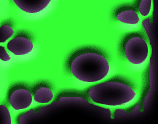|
|
|
Concentration Camp System
|
|
Between 1933 and 1945, Nazi
Germans established about 20,000 camps to imprison millions of victims. These
camps were used for several things including forced-labor camps, transit camps which served as temporary wait stations, and
extermination camps built for mass murder. Most of the prisoners in the early
concentration camps, before World War II began, were German communists, socialists, social democrats, Roma (gypsies), Jehovah’s
Witnesses, and homosexuals. These facilities were called “concentration
camps” because the people imprisoned there were literally “concentrated” in one location, and the SS units
guarded the camps.
|
 |
 |
|
|
|
| Map of the major concentration camps in Europe. |
During World War II, the Nazi
camp system expanded a lot. After the June 1941 German invasion of the Soviet
Union, the Nazis increased the number of prisoner-of-war (POW) camps. There were
many camps being built in existing concentration camps (such as Auschwitz) in Poland.
To facilitate genocide or mass destruction of the Jews, the Nazis established extermination camps in Poland, which
is also the country with the largest Jewish population. All of these extermination
camps were built mainly for mass murder. The Nazis constructed gas chambers,
which are rooms that were filled with poison gas to kill prisoners inside, to increase the killing, and then burn them in
a crematory to hide all the evidence. These German Nazis murdered more than three
million Jews in the extermination camps alone. Only a small fraction of those
imprisoned in camps survived.
|
 |
|
|
 |
|
|
 |
|
|
 |

|
 |
|
People's Stories!
|
|

